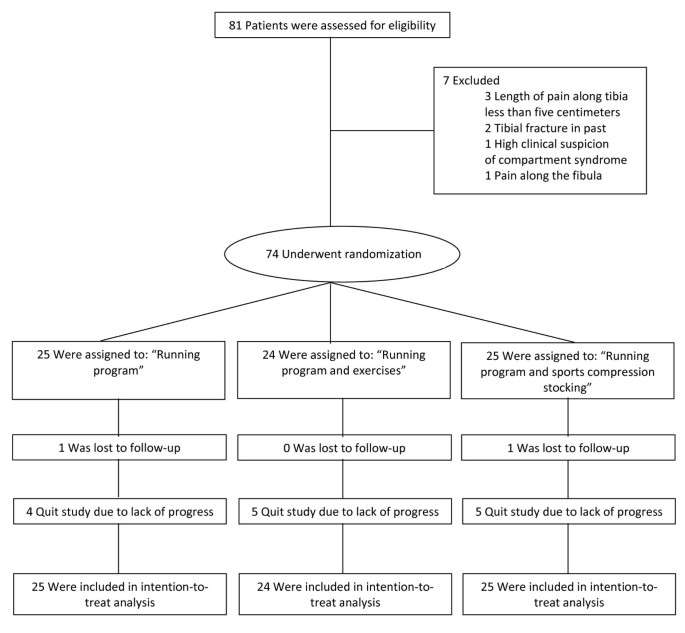Interpersonal therapy, or IPT, is a short-term, focused treatment for depression. Studies have shown that IPT, which addresses interpersonal issues, may be at least as effective as short-term treatment with antidepressants for mild to moderate forms of clinical depression. Originally developed to treat depression in adults, it has been shown to be effective in treating adolescent depression and is commonly recommended as a treatment for depression in children.
Events surrounding interpersonal relationships do not cause depression. But depression occurs within an interpersonal context and affects relationships and the roles of people within those relationships. By addressing interpersonal issues, interpersonal therapy for depression puts emphasis on the way symptoms are related to a person’s relationships, including family and peers.
The immediate goals of treatment are rapid symptom reduction and improved social adjustment. The long-term goal is to enable people with depression to make their own needed adjustments. When they can do that, they are better able to cope with and reduce depressive symptoms.
What is Interpersonal Psychotherapy (IPT)?
IPT is a form of psychotherapy that focuses on relieving symptoms by improving interpersonal functioning. It addresses current problems and relationships rather than childhood or developmental issues. Therapists are active, non-neutral, supportive and hopeful, and they offer options for change.
IPT:
- is structured
- is time-limited (active phase is usually 12–16 weeks)
- focuses on interpersonal relationships and communication
- focuses on here-and-now relationships
- aims to improve interpersonal functioning and social support.
IPT is delivered in one-to-one and group formats.
How does Interpersonal Psychotherapy (IPT) work?
A central idea in IPT is that psychological symptoms can be understood as a response to current difficulties in everyday relationships with other people.
IPT focuses on four areas:
- conflict in relationships that is a source of tension and distress
- life changes, such as job loss or the birth of a child, that affect people’s feelings about themselves and others
- grief and loss
- difficulties in starting or sustaining relationships
When people learn effective strategies for dealing with their relationship problems, their symptoms often improve.
The structure of IPT
The opening sessions (1-3) focus on collecting information and making decisions about the focus of therapy. The therapist helps the patient create a list of all the key relationships in the patient’s life (interpersonal inventory). These relationships are grouped according to the four main problem areas.
In the middle sessions (4 – 14), the patient concentrates on trying to improve the chosen problem area or areas with the support of the therapist. The patient and therapist work to develop solutions to the problems, and the patient tries to implement the solutions between sessions.
The final sessions (15 – 16) focus on dealing with any sense of loss associated with the end of therapy as well as reviewing the issues that were identified in the interpersonal inventory and the progress made in dealing with them.
Who can Interpersonal Psychotherapy (IPT) benefit?
IPT is most often used during the acute phase of major depression, but it can also be provided as a maintenance treatment to help prevent relapse and recurrence of illness.
It is also used to treat:
- anxiety
- bulimia nervosa
- chronic fatigue
- mood disorders such as bipolar and dysthymic disorders.
IPT has been adapted to treat patients from adolescence to old age. It is effective as a stand-alone treatment and in combination with medication.
Related Programs & Services
Interpersonal psychotherapy (IPT) is a time-limited, focused, evidence-based approach to treat mood disorders. The main goal of IPT is to improve the quality of a client’s interpersonal relationships and social functioning to help reduce their distress. IPT provides strategies to resolve problems within four key areas.
First, it addresses interpersonal deficits, including social isolation or involvement in unfulfilling relationships. Second, it can help patients manage unresolved grief—if the onset of distress is linked to the death of a loved one, either recent or past. Third, IPT can help with difficult life transitions like retirement, divorce, or moving to another city. Fourth, IPT is recommended for dealing with interpersonal disputes that emerge from conflicting expectations between partners, family members, close friends, or coworkers.
Several studies found that IPT may be as effective as antidepressant medication for treating depression. Psychiatrists will sometimes use IPT together with medication.
The goals of interpersonal therapy (IPT) are to help you communicate better with others and address problems that contribute to your depression.
However, depression affects relationships and can create problems with interpersonal connections. In turn, problems with interpersonal connections can contribute to depression.
Treatment usually begins with your therapist conducting an interview. Based on the problems you describe, they can identify difficulties in your personal relationships and create a treatment outline consistent with your goals.
You and your therapist will focus on the key issues you’re looking to resolve. A typical program involves up to 20 weekly hour-long therapy sessions.
IPT is similar to other modern psychotherapies (e.g., CBT) in that it’s not about finding an unconscious origin of your current feelings and behavior. In this way, it’s unlike traditional forms of psychotherapy like psychoanalysis.
IPT instead focuses on how more immediate difficulties in interacting with others are contributing to symptoms.
Depression symptoms can complicate personal relationships. This often causes people with depression to turn inward or to express frustration or irritation toward others.
Feelings of depression can occur for multiple reasons and can often follow a major change in your life, but they don’t necessarily have to follow them. Such changes or “adjustments” fall into one of four categories:
- adjustment difficulties, often associated with life changes like moves, job loss, etc.
- role transition, the beginning or ending of a relationship or marriage or diagnosis of a disease
- role dispute, a struggle in a relationship
- interpersonal deficit, the absence of a major life event
Your therapist will attempt to identify events in your life that lead to your depression. They’ll try to equip you with the skills you need to direct difficult emotions in positive ways.
For instance, they may give you strategies to practice on how to more effectively interact with family members or relationship partners.
These methods can be aimed at getting your emotional needs met with the least resistance possible or even by also satisfying the others’ emotional needs.
You may be encouraged to take part in social activities that you found stressful or painful in the past.
You may also be encouraged to bring up topics with others that may have been difficult in the past or that you may have wanted to avoid discussing with them.
This can be difficult at first, but it can be an effective way of practicing new coping techniques so that they become a habit over time.
Continued use of those techniques has been shown to lead to reduction of depression over time.
What Is Interpersonal Therapy?
Interpersonal therapy (IPT) is a short-term form of psychotherapy, usually 12 to 16 sessions, that is used to treat depression and other conditions. As its name suggests, IPT focuses on your interpersonal relationships and social interactions—including how much support you have from others and the impact these relationships have on your mental health.
When IPT was first developed, many mental health professionals conceptualized depression as “person-based.” That is, depression was not considered to be based on a person’s environment. IPT, on the other hand, recognizes that a person’s relationships can have a huge impact on mental health.
Types of Interpersonal Therapy
There are a couple of different adaptations of interpersonal therapy that you may encounter, including dynamic and metacognitive.
Dynamic Interpersonal Therapy
Dynamic interpersonal therapy (DIT) is also sometimes referred to as psychodynamic interpersonal therapy or mentalization-based therapy. DIT is designed to help you better understand your own thoughts and feelings, as well as the thoughts and feelings of others. It generally consists of 16 sessions over the course of five months.
Metacognitive Interpersonal Therapy
Metacognitive interpersonal therapy (MIT) is an integrative approach to address personality disorders with prominent emotional inhibition (holding back your emotions) or avoidance. One 12-week study found that engaging in MIT helped reduce depression symptoms and improve the ability to identify emotions.
Interpersonal therapy is also sometimes used in a modified form of couple’s therapy, such as when marital troubles are contributing to depression.
Techniques
Because IPT takes the approach of improving depression by improving relationships, it begins with the therapist conducting an interpersonal inventory. This inventory is a detailed review of your significant relationships, both current and past. These relationships are then grouped according to four main problem areas.
Grief
Depression can occur as a result of the loss of a loved one. While it is normal to go through the stages of grief in this type of situation, a major loss can also result in unresolved grief. This is grief that is delayed (remains for a long time after the loss), distorted, or grief in which you may not feel emotions, but instead experience other symptoms related to depression such as insomnia and fatigue.
Role Dispute
Role disputes occur when you and the significant people in your life have different expectations about your relationship. An example of this is if you feel that your spouse should display more affection or ask more questions about your day. The disconnect between expectations and real-life behavior can cause feelings of depression.
Role Transition
Depression may occur during life transitions, when your role changes and you don’t know how to cope with that change. Getting married, getting divorced, becoming a parent, and retiring are all examples of role transitions.
Interpersonal Deficits
If you find it difficult to form and maintain good quality relationships, IPT can help identify your interpersonal deficits. This can include any feelings of inadequacy you may have, whether you find it difficult to express your emotions, and other feelings or beliefs that are preventing you from communicating effectively.
Your therapist can help you determine which area is the most responsible for your current problems. Therapy is then directed at helping you deal with this specific interpersonal issue.
What Interpersonal Therapy Can Help With
IPT was originally created to be a short-term treatment for depression. However, it has also been shown to be an effective treatment for a number of other conditions including:
It may also be helpful for dealing with attachment issues, grief, life adjustment and transitions, and relationship conflicts,
Benefits of Interpersonal Therapy
Interpersonal therapy can have a number of important benefits, including:
- Improved relationships: IPT can help patients understand how their relationships affect their life. The goal is two-fold: to help patients function better socially and to reduce their feelings of depression.
- Decreased depression: This form of psychotherapy is based on the notion that depression occurs in the context of relationships. In other words, your relationships can potentially increase or decrease your depression, and feeling depressed can impact your relationships. As such, the goal of IPT is to relieve your depressive symptoms by improving the way you interact with others.
Unlike some of the other forms of psychotherapy for depression, IPT does not attempt to delve into your inner conflicts resulting from past experiences. Rather, it focuses primarily on your current relationships, how they may be impacting your depression symptoms, and ways that you can improve your interactions for a healthier state of mind.
Interpersonal therapy recognizes that depression is not always a “person issue,” but can also be caused by relationship issues.
Press Play for Advice On Reducing Depression
Hosted by Editor-in-Chief and therapist Amy Morin, LCSW, this episode of The Verywell Mind Podcast shares how you can use behavioral activation to reduce your depression. Click below to listen now.

Subscribe Now: Apple Podcasts / Spotify / Google Podcasts
Effectiveness
IPT has been found to be effective for treating different types and severity of depressive disorders as well as other mental health conditions. This type of therapy may be best when combined with medication in certain circumstances.
- A 2013 review of the research found that IPT was as effective as CBT for the treatment of major depressive disorder and could be recommended as a first-line treatment for the condition.
- Some research has found that interpersonal therapy can help prevent the development of major depression. Engaging in IPT regularly may also help prevent depression relapses.
- Research has also found that IPT showed significant effects in the treatment of eating disorders, anxiety disorders, substance use disorders, as well as other mental health conditions.
- Engaging in IPT as a couple has been found to improve depression and reduce relationship issues.
Things to Consider
While IPT can be an effective and appealing treatment option, it may not be the best choice for everybody. Motivation plays a pivotal role in the treatment process; it can be difficult to create change if a person is not motivated or is unwilling to examine and address the role they play in their relationships.
It is also important to note that conditions such as depression and eating disorders may be recurrent conditions. Even after initial treatment, you may need maintenance sessions to help prevent relapse, reinforce skills, and maintain progress. This might involve a monthly session to brush up on skills or address changes in your life.
How to Get Started
You should expect your treatment to last for approximately 12 to 16 weeks. Sessions are structured and involve regular assessment, therapist interviews, and homework assignments.
During your first few appointments, your therapist will learn more about you, your symptoms, and your relationship history. Next, you will work with your therapist to address specific problem areas. The strategies used can be adapted as treatment progresses, so your goals, assignments, and sessions may change as your therapist continues to assess your progress.
IPT is available in a variety of formats ranging from individual to group sessions, and sessions in which you can either participate in person or through online therapy.
It may also be beneficial to combine IPT with other depression treatments. For example, research shows that combining therapy with medication is often more effective than doing either one on its own.
Interpersonal therapy can help effectively treat depression and other mental health conditions by focusing on aspects of your relationships that might be fueling your condition. In some cases, it may even be helpful to bring significant others into the therapy process directly. Your doctor can help you determine whether IPT is right for your needs, as well as if it would work better if combined with other treatments.




